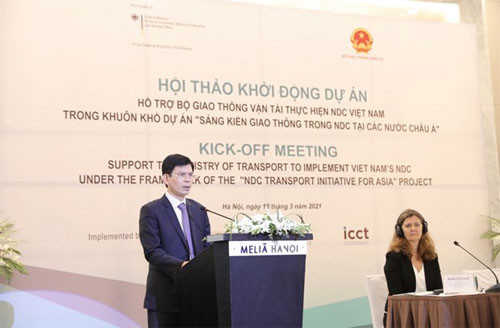 |
A kick-off meeting was held in Hanoi on March 15 to launch the project
on reducing greenhouse gas (GHG) emissions in the transport sector.
(Photo: VOV)
The event was co-chaired by Vietnam’s Vice Minister of Transport Le Anh Tuan and
First Secretary and Deputy Head of Development Cooperation at the German Embassy
in Hanoi Helene Paust.
The “Support the Ministry of Transport to implement Vietnam’s NDC under the
framework of the NDC Transport Initiative for Asia” (NDC-TIA) project will
contribute to the implementation of Vietnam’s Nationally Determined Contribution
(NDC) to the Paris Agreement on climate change.
At the launching ceremony, Tuan revealed that last September 2020, Vietnam was
one of the first 20 countries to submit its updated NDC to the UNFCCC
Secretariat, adding that compared to the first NDC submitted in 2015, the
mitigation contribution of the updated NDC has increased in terms of both volume
and percentage.
Vietnam has committed to reduce its total GHG emissions by 9 percent compared to
the Business-as-usual (BAU) scenario and by up to 27 percent with international
support received through bilateral and multilateral cooperation, as well as
through the implementation of new mechanisms under the Paris Agreement, Tuan
noted.
The NDC-TIA project is funded by the German Federal Ministry for the
Environment, Nature Conservation and Nuclear Safety (BMU) through the
International Climate Initiative (IKI), and jointly implemented by GIZ in
collaboration with the MoT’s Department of the Environment, the International
Council on Clean Transportation (ICCT), and the World Resources Institute (WRI).
The goal of the project is to contribute to Vietnam’s NDC by supporting the
design of a legal framework on low-carbon transport, enhancing stakeholders’
capacity, and reducing GHG emissions.
The project will provide technical support to the Ministry of Transport to build
mechanisms, policies and a roadmap on e-mobility development at national and
city levels, promoting the introduction and sustainable development of advanced,
modern and zero-emissions electric vehicles in Vietnam.
It is also aimed at building GHG emissions mitigation scenarios for the
transport sector to 2050 in the direction of low-carbon development and
integration into Vietnam's NDC, developing regulations on energy efficiency for
road motor vehicles, establishing an online system for the measurement,
reporting and verification (MRV) of GHG emissions and mitigation measures for
transport sub-sectors including road, rail, inland waterways, maritime, and
aviation to enhance transparency regarding GHG emissions in the transport
sector.
Rapid economic growth, urbanisation, and motorisation have resulted in higher
traffic volumes in Vietnam as well as in countries throughout Asia.
“With its 2020 NDC, Vietnam has shown its intention to mitigate climate change.
I wish the NDC-TIA project great success as it works to strengthen the policy
framework for low-carbon development and reduce greenhouse gas emissions in
transport, which together will make a significant contribution to Vietnam’s
ambitious NDC,” the VOV quoted Helene Paust as saying.
The meeting was attended by more than 80 representatives from the Ministry of
Transport, other relevant ministries, departments, directorates, and
authorities, and representatives of departments of transport from major cities
and provinces. The meeting also had the honour of welcoming virtual
presentations from the ICCT and the WRI.
During the meeting, participants exchanged experiences on the development of
roadmap for electric mobility, fuel economy, and the development of low-carbon
transport. These exchanges will prove invaluable for the effective
implementation of the project.
The project’s funding, which is expected to run until the end of December 2023,
is being provided by the German Federal Government through 4,000,000 EUR in
non-refundable ODA managed and disbursed through GIZ, with an in-kind
contribution of 400,000 EUR from Vietnam through human resources and facilities
provided by the Ministry of Transport.
Source: VNA

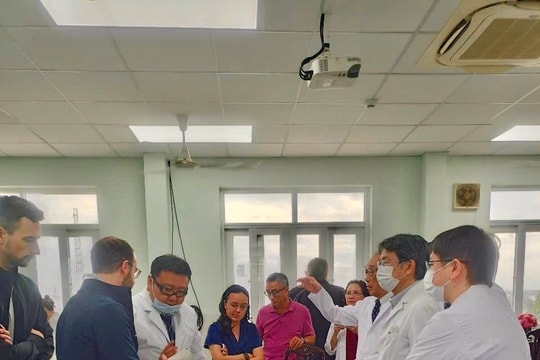
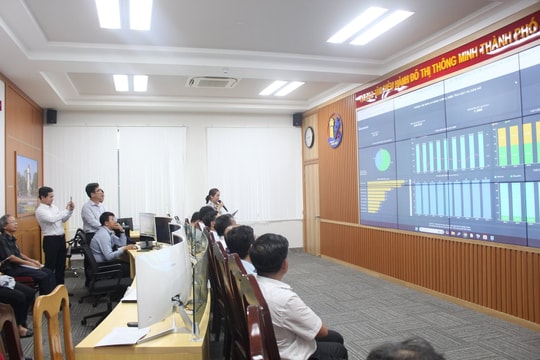
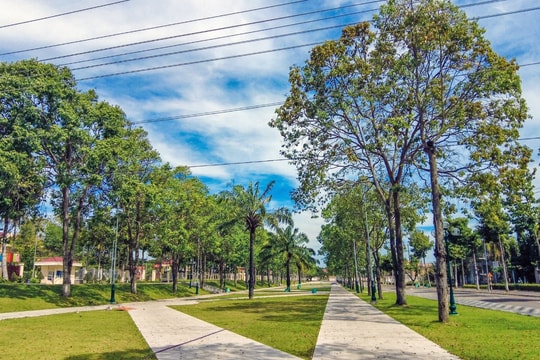
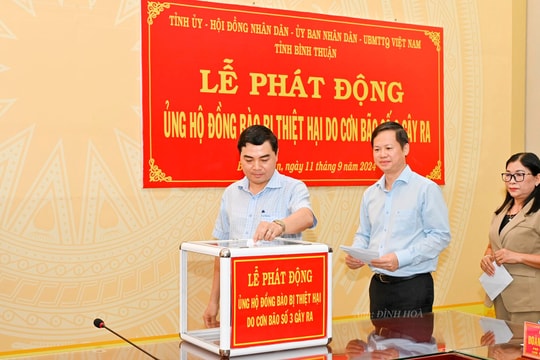

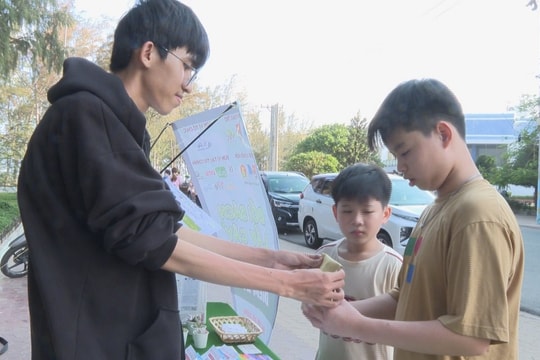






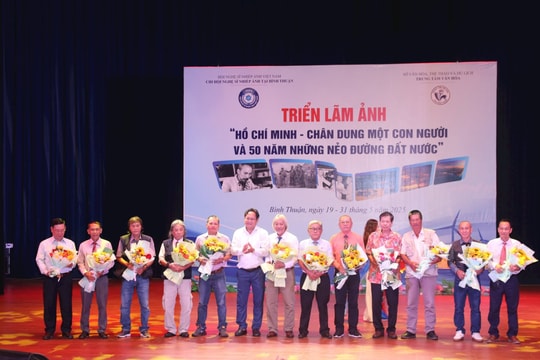






.jpg)


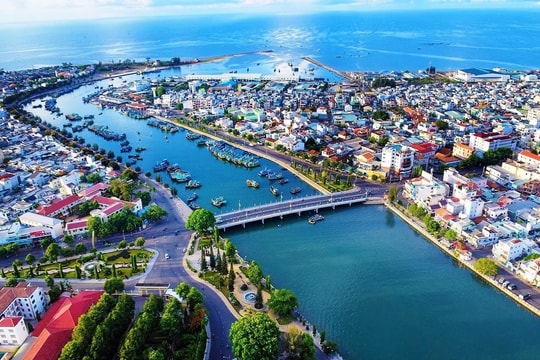


.jpeg)

.jpeg)


.jpeg)


